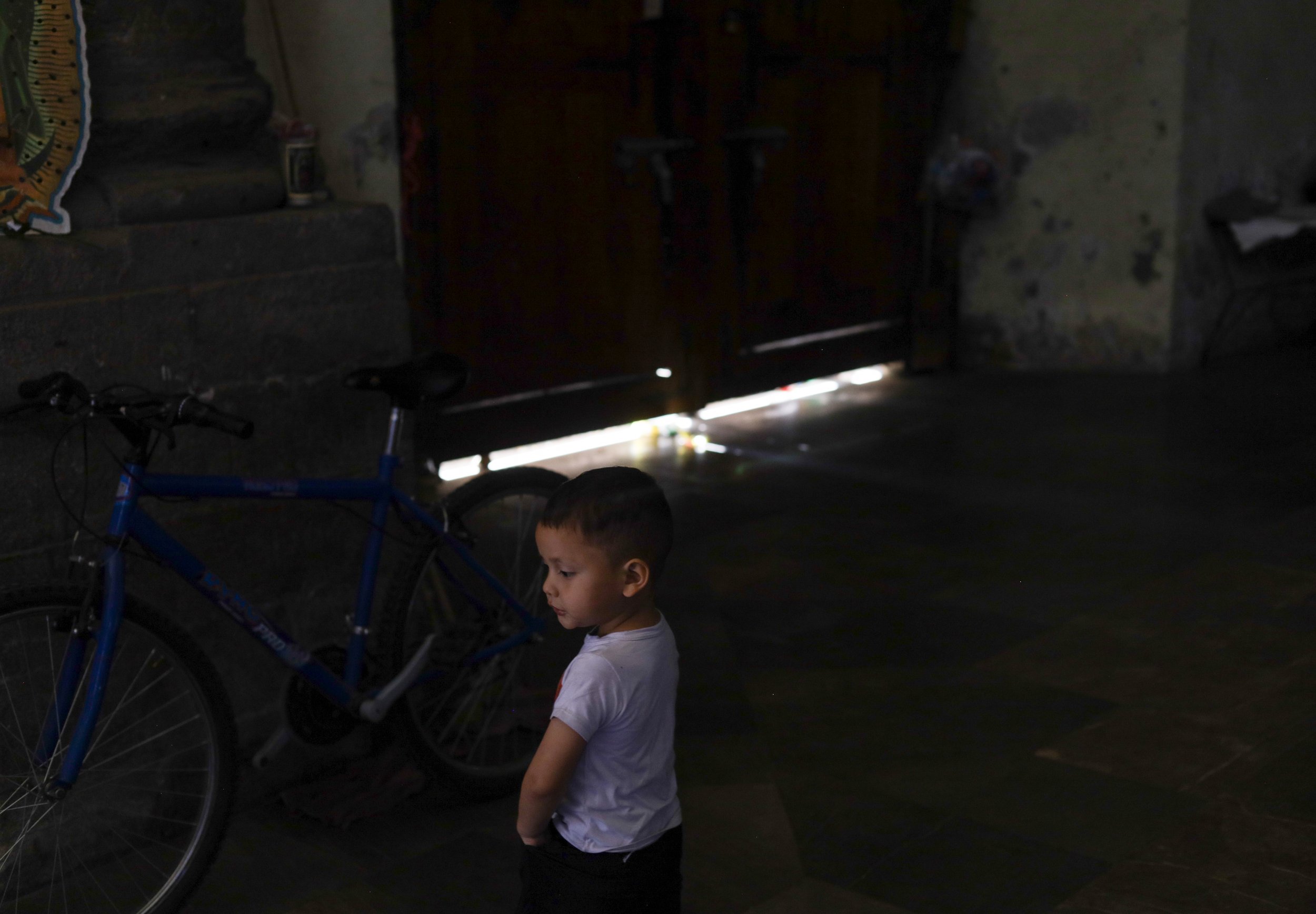La Soledad: A Fragile Refuge in Mexico City
Of the few migrant encampments in Mexico City, La Soledad remains one of the most permanent and densely populated. Situated at the foot of the 17th-century Church of La Soledad in the Venustiano Carranza neighborhood, migrants wait—sometimes for months—on their long journeys from violent homelands and harsh living conditions.
But the conditions in the encampment are far from comforting.
Boy walks around La Soledad Church as his father consults with Doctors Without Borders therapists
Central courtyard of La Plaza de la Soledad - Tarp covered encampments overshadow Mexico City's Torre Latinoamericana
Father walks with son in La Soledad Church
Family recently settled in La Soledad encampment migrating from Caracas, Venezuela
Stray dog in La Soledad encampment looks towards Centro, Mexico City
La Soledad receives no support from the Mexican government. There is no running water or sanitation. Makeshift shelters are pieced together from tarps, rope, and cord. Walking through the camp, it’s often hard to tell where one family’s space ends and another begins. Some tarps barely large enough for two people hold families of four or more.
The little aid migrants receive here comes from Doctors Without Borders, which operates inside the church. According to the organization, many migrants at La Soledad have experienced violence along their route—sexual assault, kidnappings, robbery, threats, extortion, and deprivation of food and water. The organization’s primary concern is the physical and mental wellbeing of those in the camp. Inside the church, volunteers set up rotating clinics: some days for medical checkups and medications, others for therapy sessions, particularly for women who’ve experienced sexual violence on the migrant trail.
Between January and August 2024, the organization recorded 744 consultations in Mexico related to cases of sexual violence—90 percent of them involving women.
The neighborhood of Venustiano Carranza, bordering the notoriously dangerous Tepito area, may not seem like a haven. It’s within Centro—one of Mexico City’s most volatile zones. But its location is strategic. Migrants use the CBP One app—created by U.S. Customs and Border Protection—to schedule appointments for background checks and asylum claims. La Soledad’s proximity to immigration offices makes it a practical (if unsafe) place to wait. However, Doctors Without Borders has noted that the app is unreliable—prone to crashes, cancellations, and incorrect information.
In January 2025, the CBP One app was shut down as part of broader anti-immigration reforms under the new U.S. administration. The future of encampments like La Soledad now hangs in the balance. Just weeks earlier, police dismantled a similar encampment in the Juárez neighborhood at Plaza Giordano Bruno. If La Soledad faces the same fate, it’s unclear where its residents will go next—or if they’ll have anywhere to go at all.

Whiskey 8 - Open Air Detention Site San Diego-Tijuana border

Inscription on La Soledad Church "Let no one pass this place – without affirming with his life – that Mary was conceived – without original sin"




